Written by Audrey Wheeler
Coloradans are more concerned than ever about climate change — and it’s not hard to see why.
According to the latest Conservation in the West poll, concern about climate change has gone up in every western state since 2016. Here in Colorado, 77 percent of voters say climate change is a serious problem — the highest in the region. And for the first time ever, majorities of voters across the West, including conservative bastions like Wyoming and Utah, are worried about climate change.
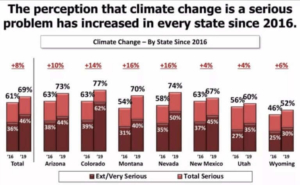 This shift is drastic. Where did it come from? Its roots may be found in the impacts of the climate crisis unfolding in our communities.
This shift is drastic. Where did it come from? Its roots may be found in the impacts of the climate crisis unfolding in our communities.
The more we see the effects of climate change happening around us, the more concerned people are about the urgency of the problem. In fact, a new poll found 74 percent of Americans say extreme weather in the past five years (such as hurricanes, droughts, floods and heat waves) has influenced their opinions about climate change.
Here in Colorado, those impacts have been real and, in some cases, drastic.
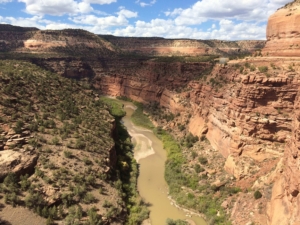 Colorado just had its second-driest summer on record. Three of the largest wildfires in state history happened over a span of just four months. More than 440,000 acres burned, destroying homes, impacting agriculture, choking our rivers with ash and sediment, and shutting people out of public lands.
Colorado just had its second-driest summer on record. Three of the largest wildfires in state history happened over a span of just four months. More than 440,000 acres burned, destroying homes, impacting agriculture, choking our rivers with ash and sediment, and shutting people out of public lands.
The Yampa River was placed on a “call” for the first time ever. As a result, many people with water rights from the Yampa were shut off. The river shrunk to a trickle through Dinosaur National Monument. Popular fishing spots from the Crystal to the Colorado Rivers were closed due to low water and warm temperatures.
Colorado is not alone in facing these extreme weather disasters. The five warmest years in recorded history have been the last five years, with 2018 coming in as the fourth-hottest year. Dire predictions from scientists about our planet’s future are coming true, right before our eyes.
Together, these facts lead to a simple conclusion: the time has come for the West to lead on climate action.
Coloradans are ready to do something. A full 62 percent of Colorado voters say climate change is an extremely or very serious problem, up 23 points in just the last few years.
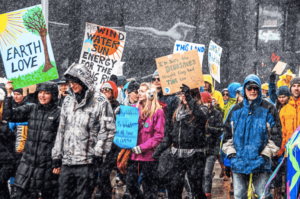
The People’s Climate March in Denver. Photo by Christian O’Rourke
We need our leaders to listen to Coloradans and act now, before the problem gets worse. While it is encouraging that more and more people care about our climate, we can’t wait for the next disaster to strike. Instead, we need action now to show the West — and the nation — how a single state can take the lead.
Colorado has led the way on climate action before. Back in 2004, we were the first state to pass a renewable energy standard by ballot measure. In the past year, we became the only interior state with Low-Emission Vehicle standards to make our cars and our air cleaner. Our biggest utility, Xcel Energy, was the first utility company in the nation to commit to 100 percent carbon-free energy by 2050.
Now, we can lead again. Colorado has the opportunity to show the country that it’s possible to act on climate. Moreover, we can prove that it’s possible in a state that produces fossil fuels. Let’s call on our decision makers to put our state on the map for more than beautiful vistas and craft beers — let’s be the state that starts the momentum to act on climate.

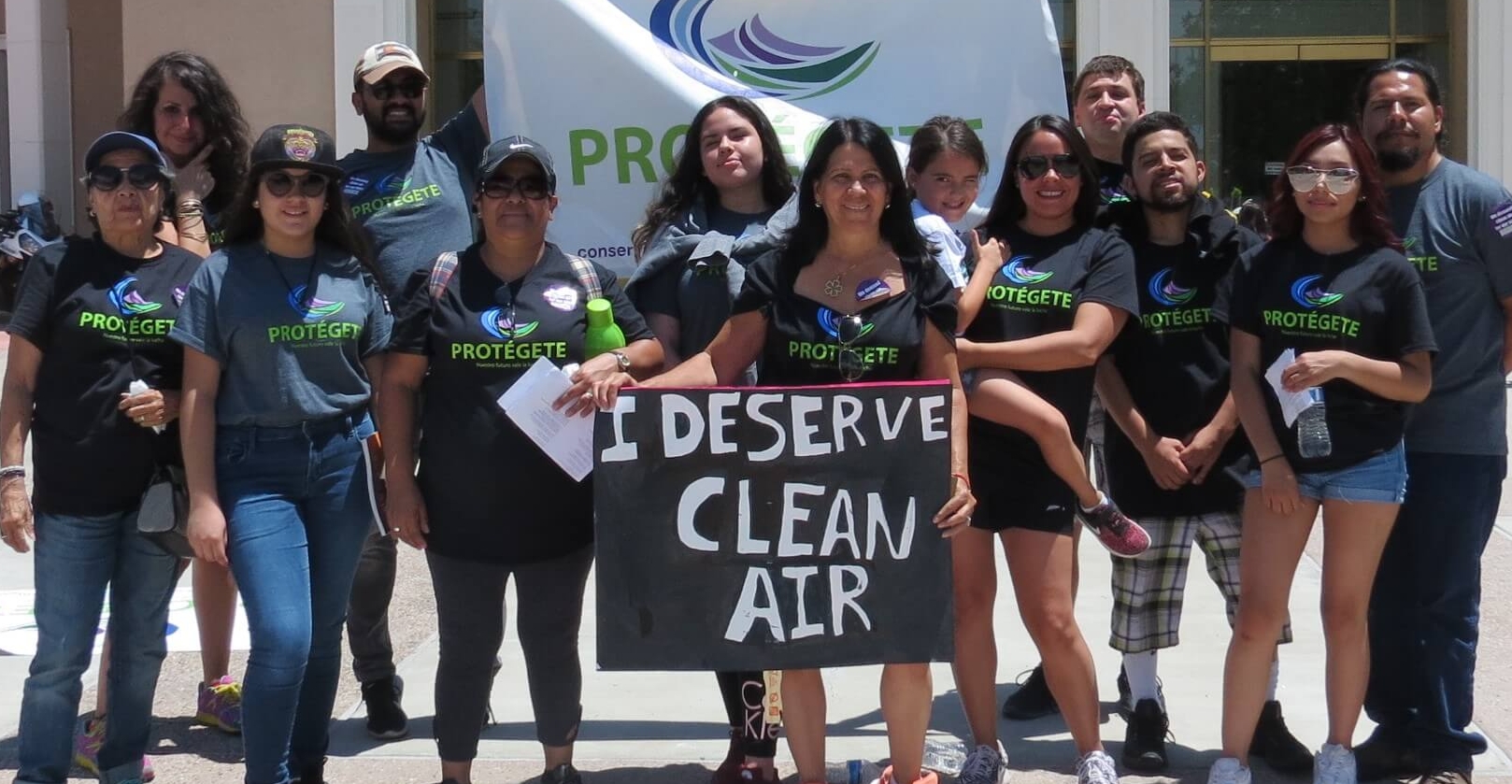

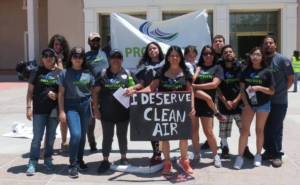 Taking bold action to protect our climate. A recent report from the United Nations found we have 12 years to act to prevent disastrous climate change. Colorado can lead the nation toward a clean energy economy.
Taking bold action to protect our climate. A recent report from the United Nations found we have 12 years to act to prevent disastrous climate change. Colorado can lead the nation toward a clean energy economy. 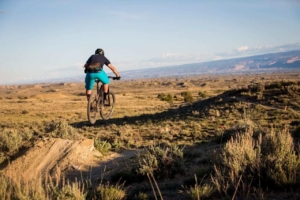
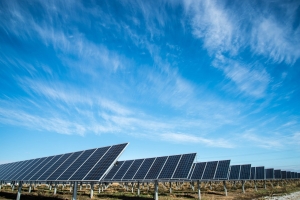

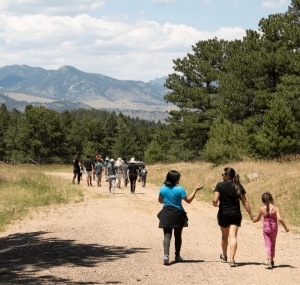
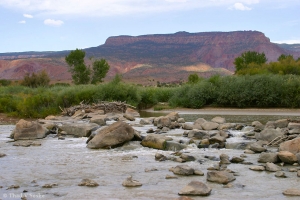
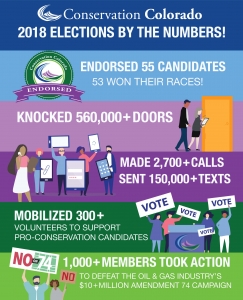
 The oil and gas industry has
The oil and gas industry has 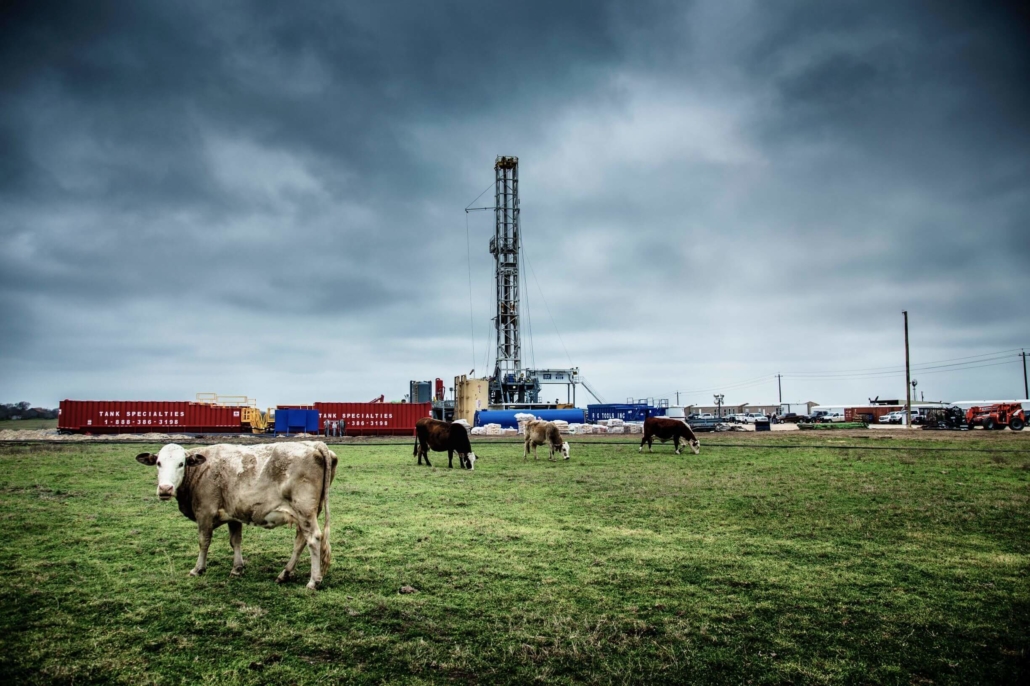 Over 100 local elected officials and legislators have spoken out against Amendment 74, reiterating that the ballot measure is too broad and goes too far. Outspoken opponents so far include a host of environmental and progressive non-profits across issue areas, Club 20, Colorado Association of Realtors, Colorado Municipal League, and Governor Hickenlooper.
Over 100 local elected officials and legislators have spoken out against Amendment 74, reiterating that the ballot measure is too broad and goes too far. Outspoken opponents so far include a host of environmental and progressive non-profits across issue areas, Club 20, Colorado Association of Realtors, Colorado Municipal League, and Governor Hickenlooper. If an oil and gas company wanted to place more pipelines, storage facilities and wells near homes – like the pipelines that caused an explosion and killed two people at a home in Firestone just last year – but was blocked by zoning laws or local rules, they could sue a local government for preventing them from making a profit.
If an oil and gas company wanted to place more pipelines, storage facilities and wells near homes – like the pipelines that caused an explosion and killed two people at a home in Firestone just last year – but was blocked by zoning laws or local rules, they could sue a local government for preventing them from making a profit.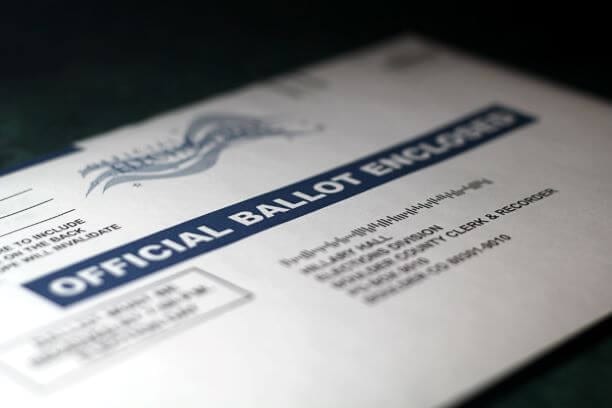 Amendment 74 would allow any property holder, including corporations, to sue local and state governments over any regulation, from city planning to basic health and safety protections.
Amendment 74 would allow any property holder, including corporations, to sue local and state governments over any regulation, from city planning to basic health and safety protections.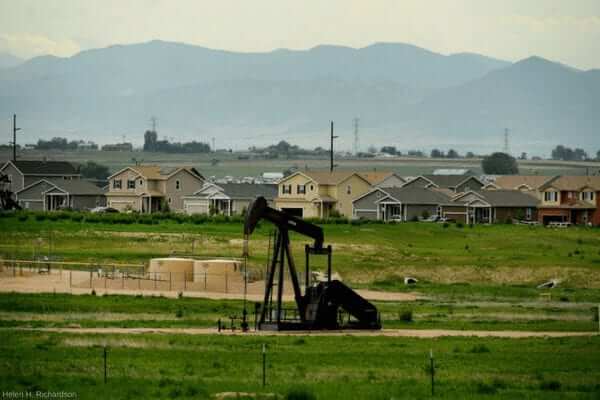 While you won’t find any mention of oil and gas in the measure itself, Amendment 74 was written to
While you won’t find any mention of oil and gas in the measure itself, Amendment 74 was written to  Allow gun shops, strip clubs, and marijuana stores to be built near schools despite neighborhood or family concerns;
Allow gun shops, strip clubs, and marijuana stores to be built near schools despite neighborhood or family concerns; Over a three-year period in Oregon, a measure similar to 74 resulted in the filing of nearly
Over a three-year period in Oregon, a measure similar to 74 resulted in the filing of nearly  Under Amendment 74, Colorado landowners will suffer. Despite what proponents of 74 claim, waiving regulations would
Under Amendment 74, Colorado landowners will suffer. Despite what proponents of 74 claim, waiving regulations would 
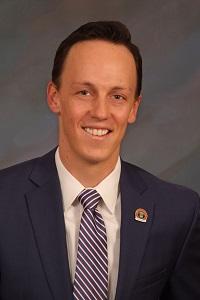 A mid-term appointment, Representative Dylan Roberts filled the seat of conservation champion Representative Diane Mitsch Bush when she decided to run for Congress. He got off to a great start with a focus on protecting our water, advancing rural economic development, and
A mid-term appointment, Representative Dylan Roberts filled the seat of conservation champion Representative Diane Mitsch Bush when she decided to run for Congress. He got off to a great start with a focus on protecting our water, advancing rural economic development, and 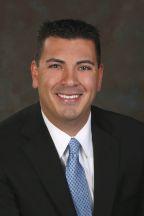

 There doesn’t seem to be a pressing West Slope issue that Senator Kerry Donovan won’t take on. From
There doesn’t seem to be a pressing West Slope issue that Senator Kerry Donovan won’t take on. From 

